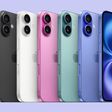Samsung Loses $1 Billion in Market Value After U.S. Veto on Apple Ban, Files Appeal Against Patent Ruling
After the Obama administration vetoed a partial ban on the import and sale of some Apple products, Samsung announced that it has been granted a hearing in a US appeals court next year against the original ruling, as reported by the Financial Times. Concurrently, The Wall Street Journal reports that Samsung has lost $1 billion in market value after the weekend veto. The South Korean government has also criticized the decision, saying it had "concern over the possible negative impacts that this kind of decision could have on Samsung Electronics' patent rights".

Samsung revealed on Monday that it had filed a court appeal on July 18 against the original ITC finding, because the ITC ruled that Apple had infringed only one patent, rather than finding in favour of Samsung on all four patents it had claimed were violated.
The appeal was filed at the US Court of Appeals for the Federal Circuit in Washington, a Samsung spokesman said, adding that an oral hearing was scheduled for the first quarter of next year.
Originally, the ban of Apple products was granted back in June in response to a ruling made by the USITC (United States International Trade Commission) and applied to AT&T models of the iPhone 4 and iPhone 3GS, as well as the 3G models of the iPad and iPad 2. The USITC ruled that all four products infringed on a Samsung patent, specifically Patent No. 7,706,348, titled "Apparatus and method for encoding/decoding transport format combination indicator in CDMA mobile communication system."
Apple and Samsung have been in a long, ongoing legal battle that started in 2011, with the first U.S. trial awarding $1 billion to Apple in 2012. However, a judge voided nearly half of that amount in March, and a new trial between the two companies is set for November of this year.
Popular Stories
iOS 19 will not be available on the iPhone XR, iPhone XS, or the iPhone XS Max, according a private account on social media site X that has accurately provided information on device compatibility in the past.
The iPhone XR, iPhone XS, and iPhone XS Max all have an A12 Bionic chip, so it looks like iOS 19 will discontinue support for that chip. All other iPhones that run iOS 18 are expected...
Apple today released iOS 18.4 and iPadOS 18.4, the fourth major updates to the iOS 18 and iPadOS 18 operating system updates that came out last year. iOS 18.4 and iPadOS 18.4 come two months after Apple released iOS 18.3 and iPadOS 18.3.
Subscribe to the MacRumors YouTube channel for more videos.
The new software can be downloaded on eligible iPhones and iPads over-the-air by going to...
Apple today released watchOS 11.4, the fourth major update to the operating system that runs on the Apple Watch. watchOS 11.4 is compatible with the Apple Watch Series 6 and later, all Apple Watch Ultra models, and the Apple Watch SE 2.
watchOS 11.4 can be downloaded on a connected iPhone by opening up the Apple Watch app and going to General > Software Update. To install the new software,...
Apple today released new firmware updates for all AirPods 4 and AirPods Pro 2 models. The new firmware is version 7E93, up from the 7B21 firmware that was installed on the AirPods Pro 2 and the 7B20 firmware available on the AirPods 4 and AirPods 4 with ANC.
It is not immediately clear what new features or changes are included in the new firmware, but we'll update this article should we find ...
While the iPhone 17 Pro and iPhone 17 Pro Max are not expected to launch until September, there are already plenty of rumors about the devices.
Below, we recap key changes rumored for the iPhone 17 Pro models as of March 2025:
Aluminum frame: iPhone 17 Pro models are rumored to have an aluminum frame, whereas the iPhone 15 Pro and iPhone 16 Pro models have a titanium frame, and the iPhone ...
Apple today released macOS Sequoia 15.4, the fourth major update to the macOS Sequoia operating system that launched in September. macOS Sequoia 15.4 comes two months after the launch of macOS Sequoia 15.3.
Mac users can download the macOS Sequoia update through the Software Update section of System Settings. It is available for free on all Macs able to run macOS 15.
With...
Visa wants to pay Apple approximately $100 million to be the new payment network for the Apple Card, reports The Wall Street Journal. As of right now, the Apple Card is on the Mastercard payment network, but that is set to change because Apple is ending its partnership with Goldman Sachs.
Both American Express and Visa are vying to replace Mastercard as Apple's card services provider, while...






















